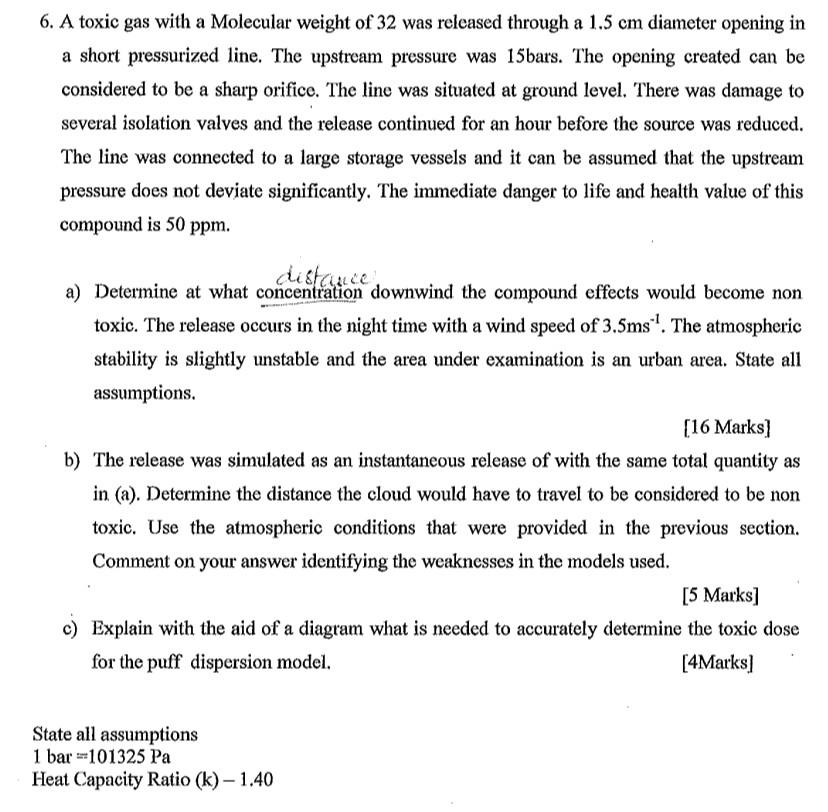Answered step by step
Verified Expert Solution
Question
1 Approved Answer
6. A toxic gas with a Molecular weight of 32 was released through a 1.5cm diameter opening in a short pressurized line. The upstream pressure

6. A toxic gas with a Molecular weight of 32 was released through a 1.5cm diameter opening in a short pressurized line. The upstream pressure was 15 bars. The opening created can be considered to be a sharp orifice. The line was situated at ground level. There was damage to several isolation valves and the release continued for an hour before the source was reduced. The line was connected to a large storage vessels and it can be assumed that the upstream pressure does not deviate significantly. The immediate danger to life and health value of this compound is 50 ppm. a) Determine at what concentration downwind the compound effects would become non toxic. The release occurs in the night time with a wind speed of 3.5ms1. The atmospheric stability is slightly unstable and the area under examination is an urban area. State all assumptions. [16 Marks] b) The release was simulated as an instantaneous release of with the same total quantity as in (a). Determine the distance the cloud would have to travel to be considered to be non toxic. Use the atmospheric conditions that were provided in the previous section. Comment on your answer identifying the weaknesses in the models used. [5 Marks] c) Explain with the aid of a diagram what is needed to accurately determine the toxic dose for the puff dispersion model. [4Marks] State all assumptions 1 bar =101325Pa
Step by Step Solution
There are 3 Steps involved in it
Step: 1

Get Instant Access to Expert-Tailored Solutions
See step-by-step solutions with expert insights and AI powered tools for academic success
Step: 2

Step: 3

Ace Your Homework with AI
Get the answers you need in no time with our AI-driven, step-by-step assistance
Get Started


